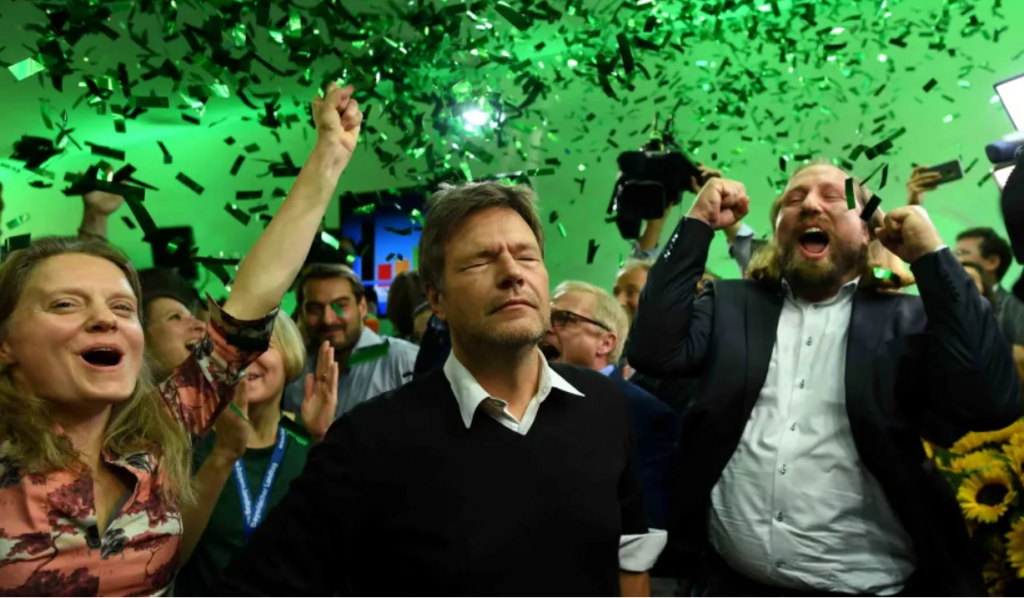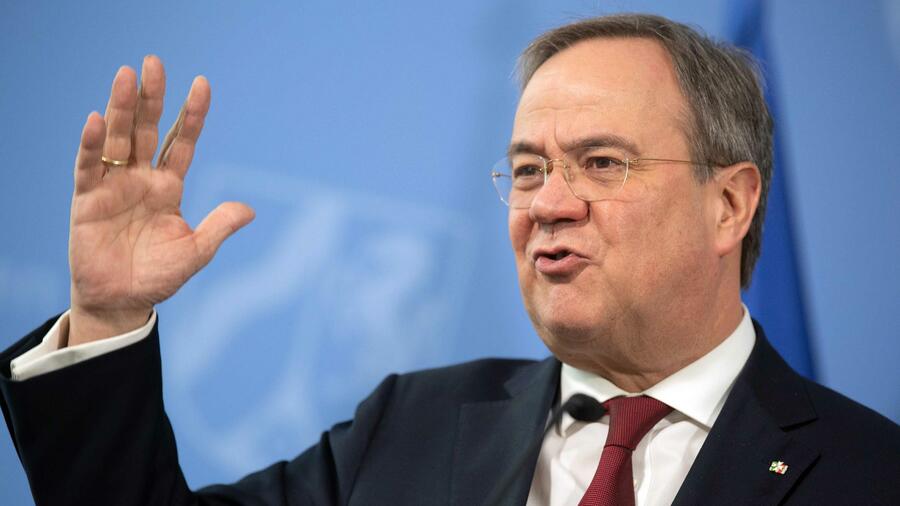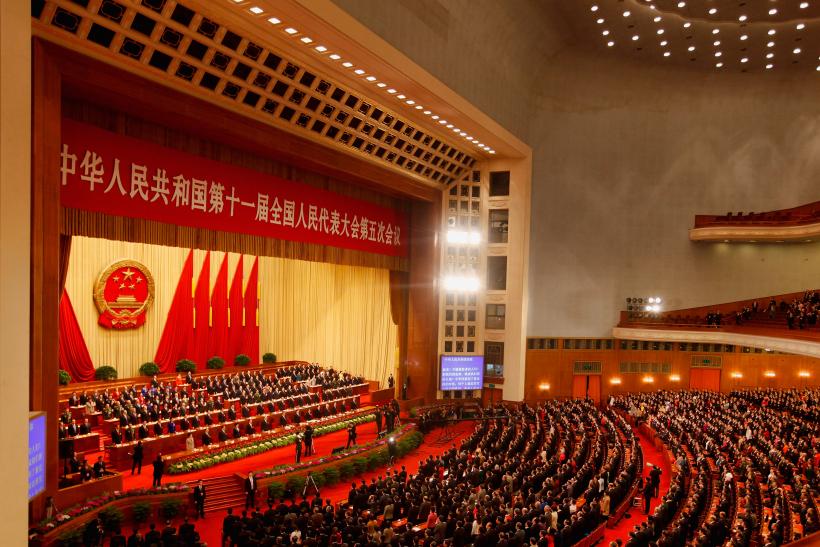MEP Daniel Freund (Group of the Greens/European Free Alliance) discusses kleptocracies, corruption in Hungary, the question of democracy and rule of law, the new CDU leader Armin Laschet and the challenges ahead of the European Union in the coming years.
Host: Balázs Csekő
Before Daniel Freund became an MEP in 2019, he was working for Transparency International and was already aware of the massive corruption surrounding Viktor Orbán and his government. “I’ve seen how Orbán over the last 10 years has transformed Hungary into a kleptocratic state.”
“It is a one man show that serves to sustain his power in the country and to enrich his close friends, his family and probably himself with the help of the resources that are available,” Mr Freund says.
A large chunk of EU funds and Hungarian taxpayer money are being stolen. “Probably about a billion euro a year is robbed from Hungarian and European taxpayers, therefore it is an enormous issue that we have to solve,” he adds.
Greens as the “real threat” to Orbán
A recent Balkan Insight article saw Germany’s Green party as the “real threat” to Viktor Orbán. The Greens are doing well in the polls; it’s almost a common belief that they will be part of the federal government after the next parliamentary election.
“We, the Greens, have taken a clear position in favor of a better protection of the rule of law, democracy and the right to press freedom,” he argues. “We would fight for these things inside the German government as well.”

Chancellor Angela Merkel and her CDU party have played an important role in keeping Orbán in their party family. “Merkel has been chancellor for over 15 years and held a protective hand over Orbán and Fidesz,” he claims.
Fidesz is still a member of the EPP, however, the politician sees movement on this question. There are currently 14 member parties inside the EPP demanding the expulsion of Fidesz. There is a “pivotal role” for CDU and CSU, the German member parties. If there was a shift in their position, that would be a “game changer”.
“I don’t think a party with the values and track record of Orbán and Fidesz belongs in the conservative party family.”
The continuity candidate
With the election of Armin Laschet as CDU leader, Mr Freund doesn’t expect any “radical deviations” from the party’s position on Viktor Orbán. Laschetis seen as the candidate wanting to continue the legacy of Merkel.
However, he thinks that the position taken by the Hungarian and Polish governments at the EU budget fight “might have changed something.” “Every person has learned thanks to Orbán’s action what the situation in Hungary is like,” he states.

“The whole issue is moving in a direction where the question is when they pull the plug,” Mr Freund is convinced.
German automotive industry
What kind of role the position of German car companies based in Hungary could play in such a theoretical situation remains to be seen.
“For a company like Audi, which is belonging to the VW Group and partly owned by the state of Niedersachsen, it’s a special situation,” Mr Freund argues.
The case of Deutsche Telekom, nevertheless, means a warning signal. The former owner of the largest online newspaper in Hungary sold it to an Orbán ally who turned it into a government propaganda mouthpiece. This is an example of the “bizarre role” of German politicians playing through partly publicly owned companies. “This raises a lot of questions,” the MEP says.
This approach could change with the Greens in the government. The Green Party is fighting for impacting policy decisions on climate, migration, human rights and democracy. “I would expect these questions to be more at the forefront than is currently the case.”
EU budget deal fight
The veto Hungary and Poland put forward collapsed quickly when the EU Commission started to “loudly think” about doing the corona recovery fund without the two countries. “I think there was no way that they would maintain their veto”, Mr Freund says.
It is important not only to use the new mechanism that took effect on January 1, but to use all means available to defend democracy and rule of law, like infringement procedures or to cut funding under the existing rules.

Photo credit: Pixabay, Pexels
“In the last few of years, they haven’t done everything they could have done and they are not using all the means that are at their disposal,” the MEP criticizes the European Commission.
Conservative politicians have tried the appeasement approach to continue the conversation when Orbán “can’t be convinced by words to stop what he is doing”. The only way possible to do that is to go after the funds.
“Orbán is not going to compromise, he is not going to stop stealing the money. The only language suitable here is the hard question of cash,” he claims.
Sanctions as possible options
Financial sanction, on the other hand, poses the risk that national governments can use such a situation to boost their popularity. The EU’s penalty of Austria, where a mixed coalition of center-right and far-right forces took the power in 2000, shows that similar measures could be counterproductive.
“Clearly there are always risks but I don’t see an alternative,” Mr Freund says.
“There is no way that we let them continue to steal the money and not do anything because then we are losing support for the EU everywhere.”
The Green MEP doesn’t share the opinion of critics who say that imposing financial penalties would result in Hungary leaving the EU. “I don’t think that is credible because the EU support in Hungary is very strong.”
Still, there are certain red lines for him: “I want to keep Poland and Hungary inside the EU, but if that means that I have to give up on democracy, rule of law and European solidarity, that’s not an option either.”
EU-US relations
Talking about the EU-US relations, he is convinced that “our relations with the Biden administration can only get better.” The last 4 years have been “very frustrating for pretty much everyone”, maybe with the exception of Viktor Orbán.
“At least we can have an adult conversation again.”
“Even if they don’t agree with us on everything.” The change might come faster than many would think. “People are already reaching out and want to have conversations on specific topics.”
Donald Trump spent more time meeting with Kim Jong Un and Putin than engaging with the European Union. “I would expect that to change,” Mr Freund is hopeful. The EU could gain with the Biden administration as an ally in the international fight against money laundering and kleptocracies.
Drawing red lines to China
The corona crisis is further accelerating China’s rise. “It’s definitely going to change the global scene quite a bit,” he says.
Therefore, Americans and Europeans “will have to talk” about how to deal with China. “It’s inevitable to have relations but we also need to see where we draw lines.”

Mr Freund is not sure the investment deal struck between the EU Commission and China several days before the Biden administration came into office was a “smart decision”. He is doubtful whether the issues around human rights, the situation of the Uighurs or other discriminated people in China were adequately taken into account.
Cover photo credit: dpa, Picture Alliance

Daniel Freund is MEP. He is a member of the Green Party both in Germany and the European Parliament. Mr Freund is also a member of the Committee on Constitutional Affairs in the European Parliament. In this capacity, he has served as his parliamentary group’s rapporteur on the 2020 scheme that linked member states’ access to the budget of the European Union respecting rule of law. He belongs to the harshest critics of Viktor Orbán and his government. Twitter: @daniel_freund
Photo credit: Daniel Freund



